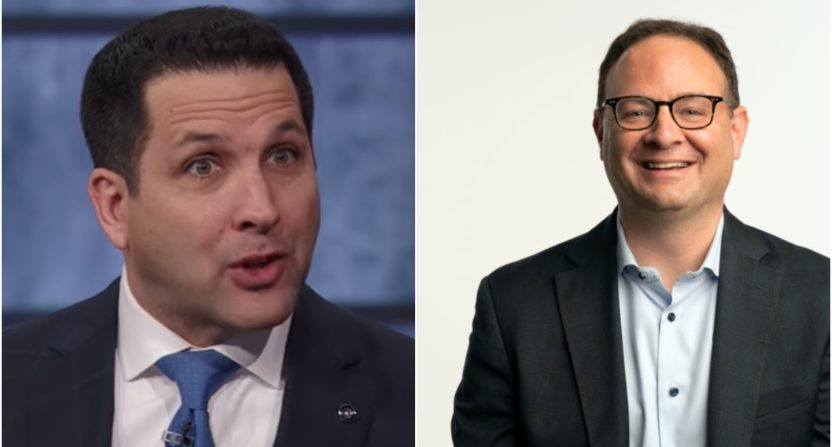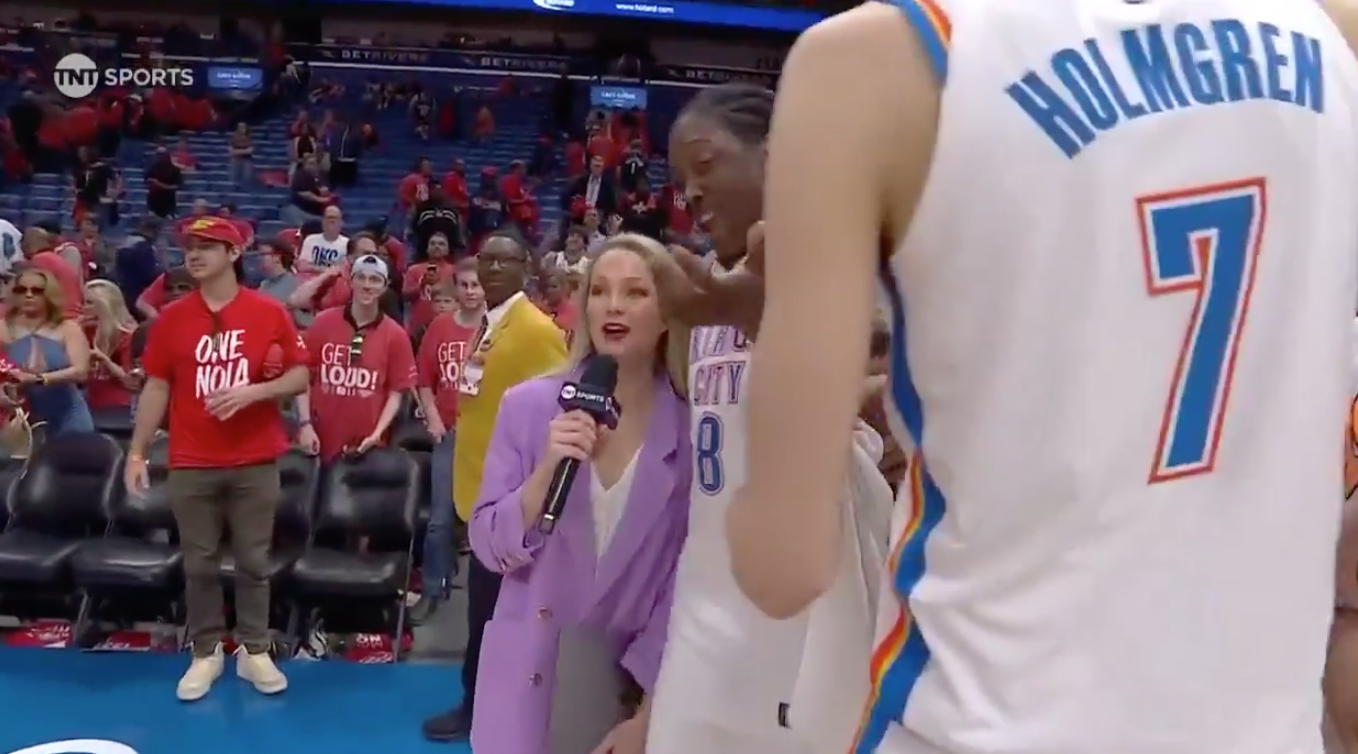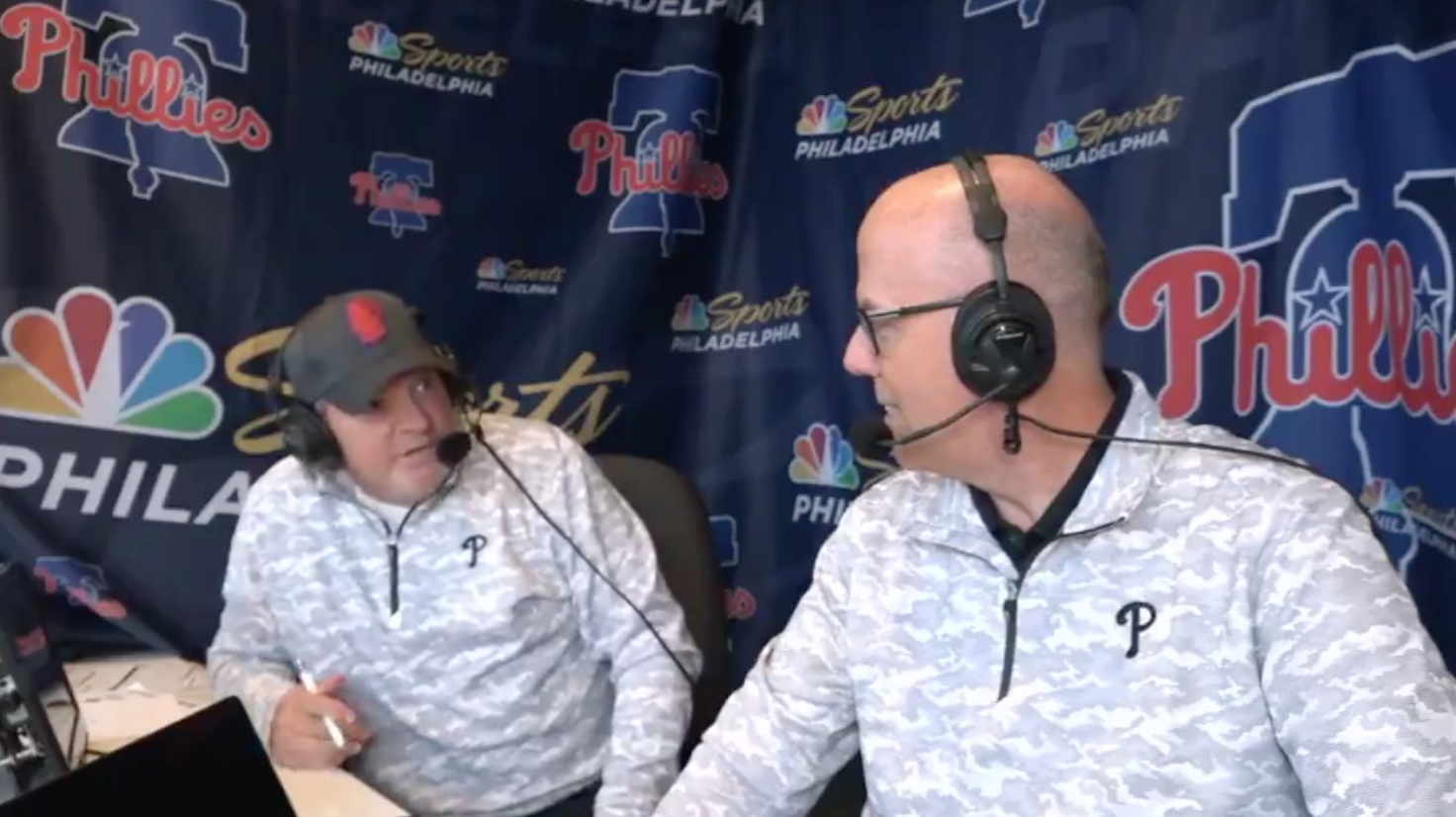When it comes to “insider” culture in sports media, the cat is all the way out of the bag. News-breakers like Adrian Wojnarowski have opened Pandora’s box, weaponizing their scoops like Robin Hood’s arrows, piercing through whatever perceived credibility they once held as credentialed reporters, gate-keepers protecting the supposed sanctity of sports journalism.
Like the farce that is “amateurism” in college athletics, the seedy underbelly of insider reporting has long been a breeding ground for corruption and moral compromise, a thorny business undercut by conflicts of interest, testing our loyalties at every turn. This transactional, quid pro quo arrangement between reporters and their sources isn’t unique to sports, though it doesn’t make their exchanges any less problematic, trading favors as matter-of-factly as Brooks Brothers-clad insurance salesmen talking shop over a round of golf at the local links course.
For instance, Wojnarowski’s claim that Portland could wait “months” to trade Damian Lillard was adamantly refuted by Miami-based podcaster Dan Le Batard, who accused Woj of pushing his own agenda, doing the Trail Blazers’ bidding by trying to leverage a better offer for their disgruntled point guard.
“Woj has always been a journalist’s journalist. But what this is now, what pays, is not what got him here. It’s a different competition,” said Le Batard of his former ESPN colleague. “So [the Trail Blazers] go to Woj, who then becomes, instead of a journalist, an information guy who’s becoming a propagandist on behalf of an organization that he has relationships with.”
Mike Schmitz, it should be noted, worked closely with Wojnarowski at ESPN, covering the draft as an NBA analyst before joining the Trail Blazers’ front office as assistant GM in 2022. Wojnarowski was caping for Portland long before Schmitz’s arrival, suggesting the franchise’s future was at stake over Lillard’s looming contract extension in 2021, calling the proposed two-year, $107-million deal an “albatross.”
This is CRAZY and credit to @MichaelRyanRuiz for pointing all this out.
The article by Woj posted below is from 2021 talking about how Dame’s contract extension is dangerous.
In 2022, Portland hired ESPN Draft Express analyst Mike Schmitz as assistant GM. pic.twitter.com/5aPHruAZ91
— Clay Ferraro (@ClayWPLG) July 17, 2023
Of course, given his close ties to the organization, it would be easy to point a finger back at Le Batard, dismissing his analysis as tainted, contaminated by a thick coating of Heat bias. Critics arrived at the same conclusion after his comments got aggregated, writing off Le Batard as a credible resource while accusing him of carrying water for Pat Riley.
By the way, when you hear people say “the Heat don’t leak anything,” it’s true. With one exception.
Once Dan starts talking, it’s because the Heat are fed up, IMO.
— Clay Ferraro (@ClayWPLG) July 17, 2023
Le Batard’s connections to the Heat (his podcast studio is literally across the street from where they play) may disqualify him from weighing in on this particular subject, though, to his credit, he never claimed to be a news-breaker. That’s a convenient copout but also an important distinction, allowing him greater freedom to speculate compared to Woj, who, in theory, should be held to a higher journalistic standard.
More than anything, the insider trade is built on relationships. In that sense, Wojnarowski is more a politician than a journalist, making inroads with league power-brokers by any means necessary. Insiders are governed by different principles than ordinary journalists, taking on a chameleon-like form as messengers for the rich and powerful. It’s thankless work, but the payoff is huge, affording Woj a platform others would kill for, even if it cost him what was left of his dwindling integrity.
“You have to carefully navigate. It’s not just, ‘Let me serve your agenda needs because [I’m] so credible right now that I can get your voice to the audience more than you can, giant NBA organization. Because everyone knows to turn to me and that’s why I’m worth $10 million a year now,’” said Le Batard, who readily admits he never had the stomach to be a front-facing reporter, preferring the creative freedom afforded to him as a columnist for the Miami Herald. “You’ve got the most credible guys reporting totally different things. I’m just asking the questions, trying to figure out what’s true here. It’s not even the doing of journalism, it’s ‘Can you tell me what’s true here?’ What’s our job in that regard?”
It would be different if Woj were a first-time offender, but his objectivity has raised questions in the past including a year ago when he mysteriously downplayed Ime Udoka’s cheating scandal, dancing around the subject while others were more critical, calling for his job following troubling allegations of workplace misconduct (not to mention infidelity). It came to light soon after that he and Udoka share an agency (both are represented by CAA), which would explain why Wojnarowski went to bat for him again in May, suggesting the Celtics’ playoff collapse was the result of a divided locker room with players still reeling from the shocking departure of their disgraced head coach.
Woj tonight:
“This team, this locker room, they never got over Ime Udoka’s dismissal as head coach. These player did not accept the organization’s reason for doing it, they thought it was a wild over reaction.”#Celtics pic.twitter.com/pDyC9YXVNA
— Justin Turpin (@JustinmTurpin) May 23, 2023
That’s a tough look, though it’s unfair to single out Woj when most of his peers are doing the same thing, making little effort to mask their favoritism toward certain players and organizations, gladly running interference for agents looking to spin whatever narrative fills their bank account.
Think of some of the fires Adam Schefter has had to put out, including eating crow after rushing to air with a story about domestic violence claims made against Minnesota Vikings running back Dalvin Cook. That’s still less embarrassing than the faux pas he made in a leaked email uncovered during the NFL’s investigation of the Washington Commanders, abandoning all semblance of professionalism in calling Bruce Allen “Mr. Editor” (a dangerous breach of journalistic ethics he would later apologize for).
Jon Heyman has had his share of sleepless nights on the free-agency beat, particularly after his fateful “Arson Judge” tweet made him the laughingstock of last year’s Winter Meetings. Even up-and-comer Shams Charania of The Athletic has raised eyebrows, inviting criticism with his dubious reporting at last month’s NBA Draft. The ensuing controversy would fuel a larger conversation about the profound impact insiders have had on sports betting, carrying enough influence to move the odds with a single tweet. In that regard, Charania’s affiliation with FanDuel presents questionable optics, raising legitimate ethical concerns about whether journalists should be allowed to partner with gambling entities.
Cynics would posit this is simply how the world works, the cost of doing business in the digital age, no better or worse than any of the other concessions we make in a capitalist society increasingly shaped by corporate interests.
That may be a defeatist mentality but it’s hard to argue, which begs the question, are insiders obligated to share the truth or is that for us to discern as consumers, treating tweets and bylines not as fact (even if it’s presented that way) but as abstract art open to interpretation? Taking reporters at face value would save us the hassle of parsing through their every word, dissecting each morsel of content they produce with the precision and laser focus of a coroner conducting a police autopsy.
Maybe that’s by design. Even if it’s largely contrived, played up for dramatic effect to keep it in the news cycle longer, the Lillard plot line is one of the few reliable threads ESPN has going right now, driving intrigue during the sleepy summer doldrums, traditionally the quietest period on the sports calendar.
No one should be judged by their worst moment, though the prevailing shamelessness exhibited by news-breakers is worrying to say the least. As alluded to by Le Batard, the resulting erosion of journalistic values has birthed a culture of skepticism, leaving a wary public to decipher what warrants further scrutiny, making the uncomfortable distinction between real, unvarnished truth and agenda-based reporting rooted in self-interest.
Call it an unintended consequence of the “fake news” era facilitated by corrupt actors like Donald Trump, a chronic gas-lighter who used his platform as leader of the free world to spread rampant misinformation while remaining oblivious to anything that might resemble accountability. Obviously, the stakes are much lower in what Le Batard refers to as “the silly playpen of sports,” though the bought-and-paid-for nature of insider reporting has no doubt complicated a journalistic landscape that was already rife with landmines, ticking time-bombs waiting to detonate at a moment’s notice.
“That is the currency of sports and how sports journalism operates now,” Greg Cote offered during Tuesday’s episode of The Dan Le Batard Show with Stugotz. “If you read an anonymous quote, chances are it’s a team executive or an agent trying to get across what they need to get across and giving a scoop to a reporter to say exactly what they want. Reporters are, very often, a mouthpiece for a certain agent and that’s how sports journalism works.”
Sports fans love the transaction, arguably more so than the games themselves, obsessing over which star player will be traded next (perhaps Shohei Ohtani?). That trend has elevated Woj, Schefter, Charania, Ian Rapoport and Brian Windhorst to kingmaker status, worshipped as industry conquerors capable of moving mountains. But as some of their recent controversies would suggest, they’re not infallible, struggling—as all of us are—to navigate a treacherous content space with new challenges arising on a daily basis.







